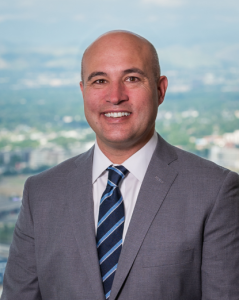For the 39th year, PNC calculated the cost of Christmas. With the year-over-year increase in 2022 being the third highest on record, inflation for services far outstripped goods in this year’s PNC Christmas Price Index® (PNC CPI) — a light-hearted take on the Bureau of Labor Statistics’ (BLS) Consumer Price Index — which measures the average change in prices consumers should expect to pay for True Love’s gifts, outlined in the classic holiday carol, “The Twelve Days of Christmas.”
READ — 5 Ways Small Business Owners in Colorado Can Survive Inflation
“True Loves will need to come up with a record $45,523.27 to buy those 12 perfect gifts this year,” said Amanda Agati, chief investment officer for PNC Asset Management Group. “This is a disquieting development for many, as pandemic-related supply chain disruptions and elevated energy and commodity prices continue to impact the cost of goods and services. Despite True Loves’ generous intentions, the gifts that make up the PNC CPI are not well-insulated from what is being experienced across the broader economy.”
Driving much of the increase is the cost of some birds in the index. While the Partridge, Calling Birds and Swans saw no flight in price, the cost of others, including Turtle Doves, French Hens and Geese, flew up 20.1%. Services are also higher, contributing significantly to the overall increase.
The cost of all 12 gifts is reported on PNC’s interactive website, which is meant to be as fun as it is educational. Highlights of the double-digit increase in the PNC CPI to $45,523.27 include:
- Far-out fertilizer prices: A key driver of the spike in the pear tree is the cost of fertilizer, which saw a growth of 28.4%.
- Soaring service costs: Services inflation, driven by increased wages and labor costs, is higher than goods inflation in the PNC CPI, much like the BLS CPI. This year, services in the PNC CPI, represented primarily by the performers, are up 14.5% while goods increased just 4.2%.
- Gold rings gaining: Given inflation concerns, some investors dashed for store-of-value assets like gold again this year. Gold ring prices are up a whopping 39% from 2021, reflecting the surge in the precious metal’s price during the year.
READ — Finding the Silver Lining Amidst Rising Interest and Inflation Rates
“While the gifts in this specialty basket of goods and services are truly unique, investors and consumers alike might consider asking their True Love for a different kind of gift this year instead,” Agati suggested.
The Federal Reserve has aggressively raised interest rates throughout the year to combat inflation against an already slowing economic growth backdrop and all indications are there is more to come.
“Markets continue to focus on two critical variables for the path forward: signs of inflation peaking and rolling over, and the Fed completing its tightening of financial conditions. In the absence of confirmation on both, we think the high volatility regime is going to continue to dominate and markets are likely to stay pretty choppy,” she added.
Price Increases for Services Outstripped Goods in 2022
True Loves who want to delight can do so with performers, but at a price. The price of Nine Ladies Dancing climbed to new heights, as did the Ten Lords-a-Leaping, who jumped for joy as they returned to in-person performances. Eleven Pipers Piping rose to a new tune, and the 12 Drummers Drumming found a higher beat. In aggregate, prices for performers increased 14.6% this year.
Although many states and localities across the country have raised minimum wages recently, the federal minimum wage has not increased since July 2009; thus, the Eight Maids-a-Milking haven’t seen a pay raise in more than a decade.
Unfortunately, tech-savvy True Loves will not save by going the e-commerce route. Buying all 12 gifts virtually is “just” 8.9% higher this year, still an eye-popping $49,663.73. Free shipping on livestock purchases is still not an option.
The annual PNC CPI tradition includes calculating the “True Cost of Christmas,” which is the total cost of items bestowed by a True Love who repeats all the song’s verses. Purchasing all 364 gifts will cost $197,071.09, which means that spreading cheer in 2022 costs 9.8% more than it did a year ago.
“Like the index, consumer behavior is the drumbeat for the U.S. economy,” Agati said. “With 70% of U.S. GDP tied to consumption, consumer financial health is key to future market performance. We will be keeping an eye on guiding stars like retail sales, savings rates and consumer sentiment as indicators of the success of this holiday season.”
Started in 1984 by a PNC predecessor bank in Philadelphia, the PNC CPI was initially developed to include in holiday messages to clients. Now, it is intended to educate consumers while spreading some holiday joy and highlighting market changes over time.
The PNC Financial Services Group, Inc. (NYSE: PNC) is one of the largest diversified financial services institutions in the United States, organized around its customers and communities for strong relationships and local delivery of retail and business banking including a full range of lending products; specialized services for corporations and government entities, including corporate banking, real estate finance and asset-based lending; wealth management and asset management. For information about PNC, visit www.pnc.com.


